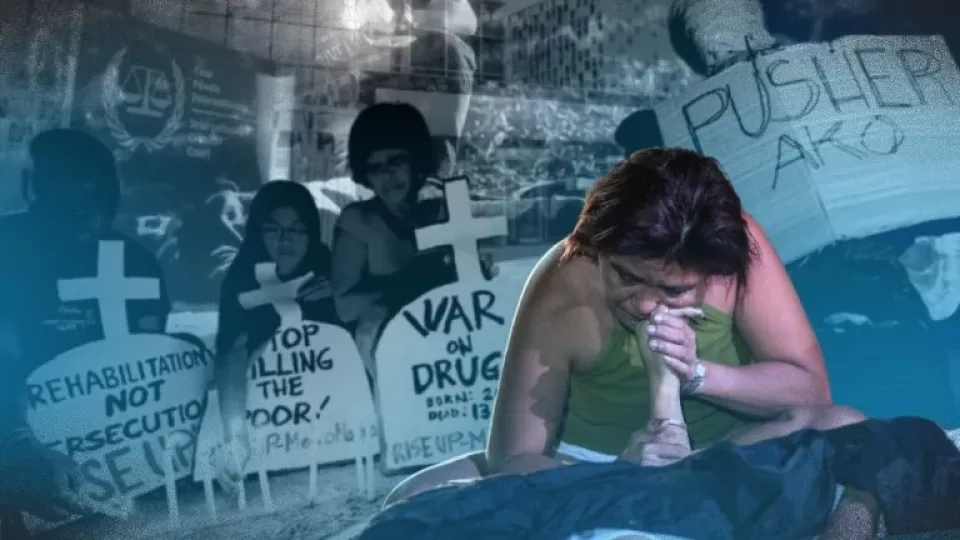March 1, 2023
MANILA, Philippines — Families who lost loved ones in the Duterte administration’s war on drugs have invoked the right to object formally to the Philippine government’s effort to stop the prosecutor of the International Criminal Court (ICC) from investigating the thousands killed during the crackdown.
A Feb. 17 submission made public on Friday and filed on behalf of some 90 family members asked the ICC for the opportunity to “present views and concerns in the appeal by submitting a response to the appeal brief” to be submitted by the Philippine government this month.
It cited Article 68 (3) of the Rome Statute, ICC’s founding document, which stipulates that the court should permit victims’ views and concerns to enter into the records at stages of the proceedings, in a manner not prejudicial to the rights of the accused.
The 90 applicants represent one of several groups that have filed communiques before the court since 2016 accusing then President Rodrigo Duterte and other officials of crimes against humanity by authorizing thousands of extrajudicial killings (EJKs) in the bloody campaign against illegal drugs.
‘Trauma, loss of income’
They argued that the Philippine appeal to suspend the ICC investigation would have an “immediate and direct effect on the personal interests of the applicants as they have not been able to obtain justice and remedies for the crimes committed against their family members.”
Some of the applicants, they said, “experienced torture at the hands of the police in relation to the drug war.”
“As a result of the killings of their family members or the torture they were subjected to, the applicants have suffered physical, psychological and socio- economic harm, including physical pain, injuries, anxiety, loss of sleep, trauma, feeling of fear, depression, loss of income, and economic hardship,” they said.
Obscured death toll
Government data put the death toll of the drug war during Duterte’s term from July 2016 to May 2022 at 6,252 individuals, but human rights groups contend that the actual number could be three times that, as a consequence of sloppy investigation, and in a number of documented cases, falsified death certificates.
The Philippine government is expected to file its appeal brief before the March deadline, after the ICC Pre-Trial Chamber I, in a Jan. 26 decision, authorized ICC prosecutor Karim Khan to proceed with the preliminary investigation.
In a Feb. 3 petition, the government, through Solicitor General Menardo Guevarra, who served as Duterte’s justice secretary, sought the reversal of the ICC chamber’s decision.
Under ICC processes, the government is to submit its arguments in a more detailed appeal brief, with the prosecutor given the chance to respond afterward.
The Marcos administration has supported its predecessor in the ICC case, arguing that the court has no jurisdiction over the Philippines after the country’s withdrawal from the Rome Statute took effect in 2019, and that the government is already investigating the same drug war-related crimes under scrutiny.
In 2021, the Supreme Court ruled that withdrawing from the Rome Statute “does not discharge a state party from the obligations it has incurred as a member.”
Back in Geneva
On Wednesday, Justice Secretary Jesus Crispin Remulla will again seek to convince the international community that the Philippines is pursuing human rights reforms, as he addresses the 52nd Regular Session of the United Nations (UN) Human Rights Council (HRC) in Geneva, Switzerland.
Remulla will speak on the “progress in the government’s justice sector programs under the Marcos administration’s larger human rights and development agenda,” the Department of Justice (DOJ) said in a statement.
He will also discuss the importance of upholding sovereignty and harnessing international solidarity in the promotion and protection of human rights, the DOJ said.
Remulla is scheduled to meet with HRC President Vaclav Balek, UN High Commissioner for Human Rights Volker Turk, Australian Assistant Foreign Minister Tim Watts, and UN Framework Convention on Climate Change Director General Majid Al Suwaldi.
On Tuesday, he was expected to join a panel discussion to share what the government had done to strengthen the criminal justice system, particularly in decongesting jails and prisons, reducing case backlogs, and improving the poor’s access to the system.


